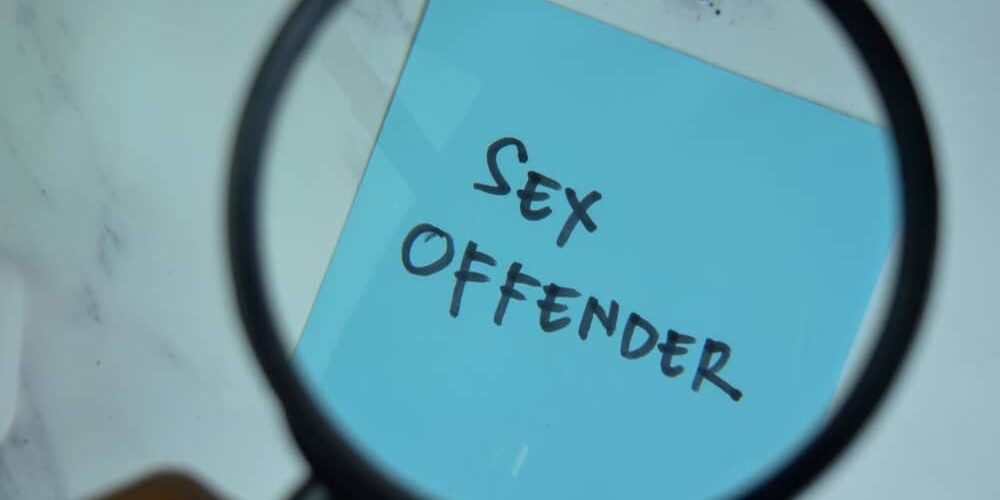In Western Australia, persons convicted of sexual offences must be placed on a registry known as the Community Protection Offender Register or simply the Register. The registry is governed under The Community Protection (Offender Reporting) Act 2004.
The purpose of the Register is:
- Reduce the chance that a convicted offender will commit another sexual offence
- Help the police investigate sexual offences
- Regulate the participation of convicted sexual offenders in certain events
A person must register if sentenced for a reportable offence (a class 1 or class 2 offence).
Various Sexual Offences
Class 1 Sexual Offences Include
- Aggravated Sexual Penetration
- Murder Of a Child
- Sexual Offences Against People Who Are Mentally or Physically Impaired
- Sexual Offences by Relatives
- Sexual Offences Where the Victim Is Under 16 Years Old
Class 2 Sexual Offences Include
- Burglary Where the Offender Entered the Premises Intending to Commit a Sexual or Indecent Assault on a Child
- Causing, Encouraging or Allowing a Child to Take Part in Prostitution
- Deceptively Recruiting for Commercial Sexual Services
- Indecent Assault of a Child
- Indecently Recording a Person Under 16
- Offences Regarding Child Pornography
- Sexual Acts Involving a Minor
- Sexual Servitude Involving a Child
- Using Electronic Communication or a Carriage Service to Procure Or Groom a Child Under 16 Years for Sexual Acts
In each of these offences, the victim’s age and the specifics of the offence influence the penalty a convicted offender must serve. The policy of sentencing considers the following factors.
- The Victim’s Age – Sexual offences against children (under the age of 16 or the age of 18 if the child was under the care, supervision, or authority of the accused) will result in harsher sentences.
- Mentally Impaired or Elderly Victims – Courts typically hand down harsher sentences for sexual assaults on persons who are mentally impaired or over the age of 60.
- If Penetration Took Place – Acts of a sexual nature that do not involve penetration or attempted penetration are known as indecent acts and carry penalties less severe than acts when penetration occurs.
- The Method of Penetration Achieved or Attempted – Although all types of penetration are regarded as acts deserving of severe penalties, the court will hand down the steepest sentence for penile penetration.
- Aggravating Factors – The court will look at factors such as premeditation, duration of the assault, the helplessness of the victim, naïveté of the victim, and harm resulting from the attack.
Liberato direction is generally given in cases where a complainant and a defendant give evidence. This is more commonly called word against word. In such cases, the Liberato direction is given to the jury so they understand that the evidence presented by a defendant does not remove the prosecution’s responsibility of proof.
How Credibility and the Liberato Direction in Sex Offences Affect the Prospects of Acquittal in a Jury Trial
In trials where the credibility of evidence presented by the prosecution is questionable and evidence given by the defence is viable, the jury must stand by the prescribed statutes and offer an acquittal.
Under the Liberato direction, the jury is reminded that evidence provided by the defence that contradicts that of the prosecution does not negate the prosecution’s responsibility to prove guilt. The prosecution must remove all reasonable doubt for a conviction to take place. Additionally, if the evidence does create a reasonable doubt of the defendant’s guilt, the jury must acquit.
***The information provided on this website does not, and is not intended to, constitute legal advice; all information, content, and materials available on this site are for general informational purposes only. Information on this website may not include the most up-to-date legal or other information.
Readers of this website should contact their attorney for advice on any particular legal matter. Only your attorney can provide assurances that the information contained herein and your interpretation of it are applicable or appropriate to your situation. No reader, user, or browser of this site should act or refrain from acting based on information on this site without first seeking legal advice from counsel in the relevant jurisdiction. Use of, and access to, this website or any of the links or resources contained within the site do not create an attorney-client relationship between the reader, user, or browser and website authors, contributors, contributing law firms, or committee members and their respective employers.








